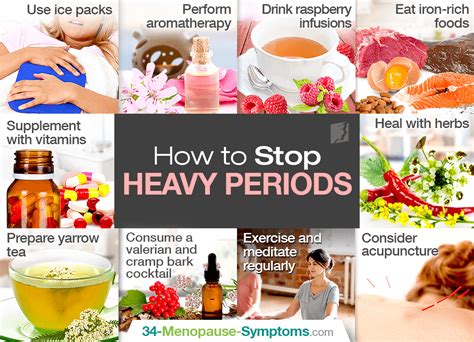How to Stop Menstrual Bleeding Immediately: Home Remedies and When to See a Doctor
Heavy menstrual bleeding, or menorrhagia, can be disruptive and concerning. While it's a natural process, excessive bleeding can significantly impact your daily life. This article explores several methods to help manage heavy menstrual bleeding, focusing on home remedies and when professional medical attention becomes necessary. Remember, this information is for general knowledge and shouldn't replace professional medical advice.
Understanding Heavy Menstrual Bleeding
Before diving into solutions, it's crucial to understand what constitutes heavy bleeding. Heavy periods are typically characterized by:
- Soaking through more than one sanitary pad or tampon every hour for several consecutive hours.
- Requiring double sanitary protection to manage bleeding.
- Experiencing blood clots larger than a quarter.
- Bleeding lasting longer than seven days.
- Experiencing anemia due to blood loss (symptoms include fatigue, weakness, shortness of breath).
If you're experiencing any of these symptoms, it's essential to consult a doctor to rule out any underlying medical conditions.
Home Remedies to Manage Heavy Bleeding (Temporary Relief)
These home remedies might provide temporary relief and can help manage the flow but should not replace medical advice if bleeding is excessively heavy or concerning:
1. Over-the-Counter Pain Relief
Medications like ibuprofen (Advil, Motrin) or naproxen (Aleve) can help reduce pain and inflammation, potentially lessening blood flow. Always follow the recommended dosage instructions.
2. Applying Pressure
Applying direct pressure to your lower abdomen might help slow down bleeding. This is a temporary measure and shouldn't be relied upon as the primary solution.
3. Dietary Changes
Certain foods might help regulate your menstrual cycle and reduce bleeding. While not a guaranteed solution, incorporating foods rich in iron (like spinach and lentils) and vitamin K (like leafy greens and broccoli) can be beneficial. Additionally, limiting caffeine and alcohol intake can help.
4. Rest and Relaxation
Stress can exacerbate menstrual symptoms. Getting adequate rest and practicing relaxation techniques, such as deep breathing or meditation, can contribute to overall well-being and potentially ease bleeding.
5. Herbal Remedies (Use with Caution)
Some herbal remedies, like shepherd's purse or yarrow, are traditionally used to help manage heavy bleeding. However, always consult a doctor before using herbal remedies, as they can interact with other medications or have side effects.
When to Seek Immediate Medical Attention
While the above remedies might provide temporary relief, certain situations require immediate medical attention:
- Soaking through a pad or tampon every hour for several consecutive hours.
- Experiencing severe pain or dizziness.
- Passing unusually large blood clots.
- Suspecting pregnancy complications.
- Experiencing symptoms of anemia (fatigue, weakness, shortness of breath).
- Sudden, unexplained heavy bleeding.
Do not delay seeking medical attention if you experience any of these symptoms.
Conclusion
Heavy menstrual bleeding can be distressing, but understanding the underlying causes and employing appropriate strategies can make a significant difference. While home remedies can provide temporary relief, it's crucial to consult a healthcare professional for proper diagnosis and treatment, particularly if your bleeding is heavy, prolonged, or accompanied by other concerning symptoms. Remember, your health is paramount, so don't hesitate to seek medical help when needed.
